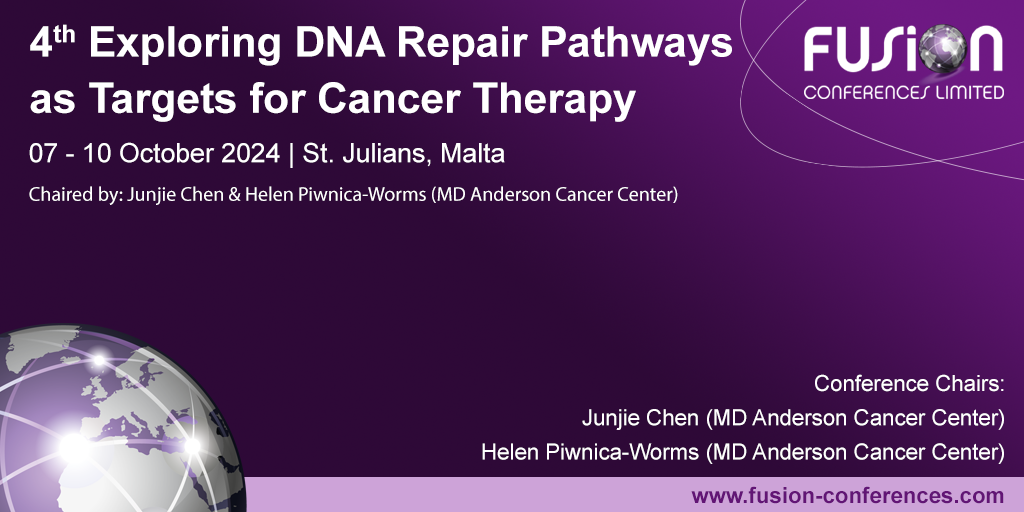
4th Exploring DNA Repair Pathways as Targets for Cancer Therapy Conference
DNARepair24
Date of beginning
Monday, 07 October 2024Duration
4 daysDeadline for abstracts
Thursday, 02 May 2024Contact
Chloe TrundleExpected participants
100Memo
Defects in DNA damage repair and checkpoint control are underlying mechanisms driving tumorigenesis, since they allow for the accumulation of genetic alternations. Indeed, defects associated with these pathways are the underlying cause of several human cancer-prone syndromes. On the other hand, defects in DNA repair and checkpoint control create vulnerabilities in cancer cells that can be targeted by DNA damaging agents and inhibitors that disrupt checkpoint pathways. More recently, defective DNA repair and checkpoint regulation have been shown to influence R-loop formation, replication fork stability, and innate immunity. These new findings not only reveal additional mechanisms contributing to tumorigenesis, but also provide new targets for cancer therapy. This conference will focus on exploring these vulnerabilities, taking advantage of the synthetic lethality concept, and targeting specific DNA repair and checkpoint pathways for cancer therapy, either alone or in combination with chemotherapy, radiation therapy, targeted therapy, and immunotherapy. This conference will bring together basic, translational and clinical investigators to discuss current and future directions, opportunities and obstacles to the development of these anti-cancer modalities and how to best translate these concepts to clinical practice.

